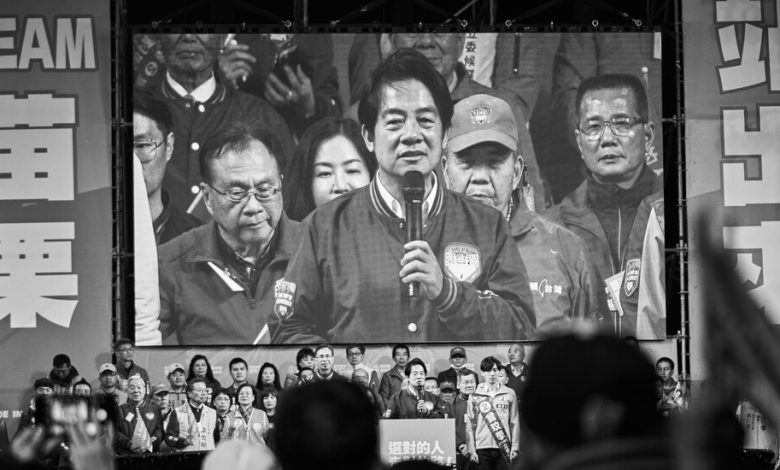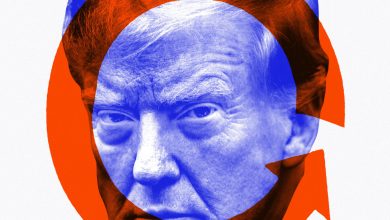A Peaceful Solution on Taiwan Is Slipping Away

Conflict between China and the United States just got a little more likely.
On Saturday, Taiwanese voters handed the Democratic Progressive Party (D.P.P.), which asserts that Taiwan is already independent from China and should stay that way, an unprecedented third consecutive presidential victory. In doing so, the island’s people shrugged off ominous warnings by China that a win by President-elect Lai Ching-te — considered by Beijing to be a dangerous Taiwan independence advocate — could trigger a war.
The result should lay to rest any doubt about the direction in which Taiwan is going. Determined to maintain their autonomy, the people of Taiwan are drifting further from China and won’t come back voluntarily, elevating military action as one of the only options left for China to effect the unification with Taiwan that it has long sought.
This hardening in Taiwanese attitudes has been a long time coming. In 1949, China’s former Kuomintang (K.M.T.) government lost a civil war against Communist Chinese forces and fled to Taiwan, dividing the two sides. For decades, the K.M.T. clung to an official policy of eventual unification with the mainland, and the question of whether Taiwan is part of China or its own distinct and self-ruled polity has dominated island politics ever since.
In 1994, more Taiwanese considered themselves exclusively Chinese than Taiwanese, and more favored moving toward unification with China than toward independence. Beijing courted such sentiments by forging close economic links with Taiwan. But attitudes have inexorably shifted as Taiwan blossomed into a democratic and economic success. Now, with China’s economy stagnating, it has fewer carrots to offer, and repressive Chinese actions like its crackdown on Hong Kong’s freedoms have further alienated Taiwan. As a result, President Xi Jinping of China has increasingly turned to wielding the stick — economic coercion, military threats and an online disinformation campaign in Taiwan — to pressure the island’s people into unification.
It is now clear that this strategy has failed spectacularly. Today, nearly two-thirds of Taiwan’s people consider themselves exclusively Taiwanese, versus only 2.5 percent who identify as exclusively Chinese. Almost 50 percent of the island’s 24 million residents prefer future Taiwanese independence over maintaining the current ambiguous status quo (27 percent) or unification with China (12 percent).
There are reasons Mr. Xi might take modest comfort from the election result. The D.P.P.’s margin of victory in the presidential race was smaller than four years ago and it lost its legislative majority. But the weaker D.P.P. showing does not reflect a softening of independence sentiment in Taiwan. Rather, it is probably due more to bread-and-butter issues like stagnant wage growth and soaring housing prices, which loomed large in campaigning and public opinion surveys, as well as with public fatigue with the party after eight years in power.
We are having trouble retrieving the article content.
Please enable JavaScript in your browser settings.
Thank you for your patience while we verify access. If you are in Reader mode please exit and log into your Times account, or subscribe for all of The Times.
Thank you for your patience while we verify access.
Already a subscriber? Log in.
Want all of The Times? Subscribe.




